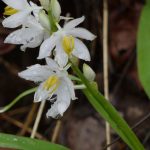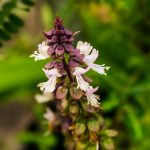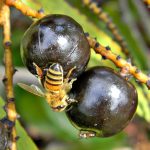Tropical Indian herb safed musli may enhance overall male sexual function, but effects on testosterone are unclear. Safed musli is prized in Indian Ayurvedic medicine for being an aphrodisiac and adaptogen. It is believed to have such potential benefits for masculinity as: Increasing sexual function. Animal research has consistently demonstrated the sexual health … [Read more...]
Brassaiopsis glomerulata for Testosterone
Brassaiopsis herb may increase testosterone levels by inhibiting aromatase but lacks research backing. Brassaiopsis glomerulata is a plant whose leaves contain bioactive compounds with potential health benefits. It may have a notable impact on masculinity by: Blocking aromatase. Brassaiopsis has demonstrated an ability to inhibit aromatase from converting … [Read more...]
Holy Basil for Immunity
Early research is beginning to provide evidence for holy basil's long history of use as an immune booster. Holy basil is a medicinal herb native to India. It has been utilized for a wide range of conditions, and may have some potential as an immunity booster through: Immunodulatory activity. Early research indicates that holy basil can boost immune system … [Read more...]
Akarkara for Testosterone
Akarkara root has shown the ability to boost testosterone and enhance sexual health in animal studies. Akarkara is a herb with a rich history of use for the male reproductive system. Its specific potential uses for male sexual health include: Boosting testosterone levels. Akarkara has been to act as a testosterone (T) booster in animals. Enhancing virility. Libido, … [Read more...]
Saw Palmetto for Testosterone
Saw palmetto may boost testosterone by blocking its conversion into dihydrotestosterone. Saw palmetto is a fruit-bearing palm tree whose bioactive ingredients are believed to influence the conversion of sexual hormones. It may particularly affect masculinity by: Increasing testosterone levels. Saw palmetto may boost testosterone (T) by preventing it from converting into … [Read more...]




